
"Love & Honey" is R&B-turned-pop singer-songwriter Koda Kumi's eleventh domestic single. The single reached No. 4 on Oricon, making it her first single in the Top 10 since real Emotion/1000 no Kotoba. It stayed on the charts for thirty-five weeks.

"Fly High" is a song recorded by Japanese recording artist Ayumi Hamasaki. It was released by Avex Trax in Japan on February 9, 2000, and through Avex Entertainment Inc. worldwide in September 2008. The recording served as Hamasaki's third and final limited edition single from her second studio album, Loveppears (1999), limiting physical units to 300,000 copies. The track was written by the singer herself, while production was handled by long-time collaborator Max Matsuura. Two versions of "Fly High" were made available for consumption—a radio edit composed by HΛL, and the album version produced by Dai Nagao. Lyrically, the song was written in third person perspective.

X Singles is a compilation album released by X Japan on November 21, 1993. It collects all the singles, and their B-sides, released by the band while still named "X" and under contract with CBS/Sony. The album reached number 2 on the Oricon chart, and charted for 35 weeks. In 1994, with 427,860 copies sold, it was the 36th best-selling album of the year. It was later certified Million by the RIAJ. In 2014, Sony Music Japan released a remastered version.
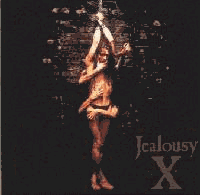
Jealousy is the third studio album by Japanese heavy metal band X Japan, then known as simply X. The album was released on July 1, 1991, by Sony, as the band's second major label release. Jealousy is the band's best-selling album, having sold more than one million copies, it topped the Oricon chart and stayed on the chart for 50 weeks. The album's singles would also reach the top three on the chart. It is their last album under the name "X", before changing to "X Japan", and the last to feature Taiji on bass, who would be replaced by Heath.

"Silent Jealousy" is a single released by X Japan on September 11, 1991.
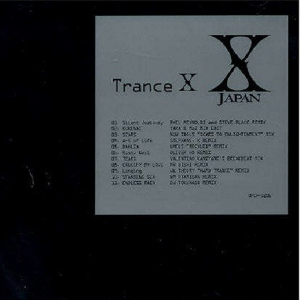
Trance X is an X Japan remix album released on December 4, 2002. The remixes were done by several DJs. It reached number 27 on the Oricon chart.

The discography of the Japanese heavy metal band X Japan consists of five studio albums, six live albums, one remix album, eleven compilations, one soundtrack album, 23 singles, and around 22 live video recordings.

BUT / Aishou(愛証 / Love Proof) is singer-songwriter Koda Kumi's 35th single and was released on March 14, 2007. It was her first single of 2007 and first to bring her new era, Kingdom. The single was a limited purchase, only being sold from March 2007 to May 2007. It charted No. 2 on Oricon and stayed on the charts for fourteen weeks. The single was released the same day as her third compilation album, Best ~Bounce & Lovers~, which was also of limited release.
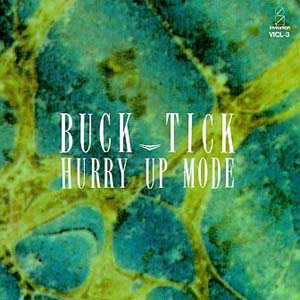
Hurry Up Mode is a remix album by Buck-Tick, released on February 2, 1990. It is composed of different versions of every song on their 1987 debut album Hurry Up Mode, except the two CD-exclusive bonus tracks. It reached number one on the Oricon chart, selling 212,430 copies. The album was digitally remastered and re-released on February 19, 2002, with two different bonus tracks. It was remastered and re-released again on September 5, 2007. "Moon Light" was later re-recorded once again for their 1992 compilation album Koroshi no Shirabe This Is Not Greatest Hits.
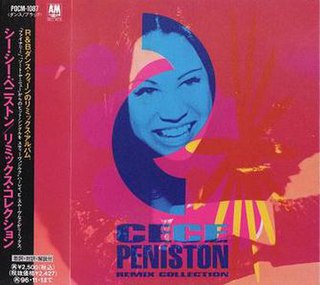
Remix Collection is a rare CD only released in Japan containing special alternate versions of songs from CeCe Peniston's first two albums Finally and Thought 'Ya Knew. Many of these versions were exclusively available on vinyl and were never released on CD. The album featured nine alternate versions previously available only on vinyl and was issued on CD in Japan in 1994.
Japanese female vocal/dance unit, MAX has released five studio albums, two compilations, three remix albums, and 31 singles. Three of their albums, Maximum (1996), Maximum Groove (1998), and Maximum Collection have topped the Oricon album charts. Four of their albums, including Maximum, Maximum II (1997), Maximum Groove, and Maximum Collection have been certified million selling albums by RIAJ. The group have 15 consecutive top ten singles, 16 overall. Their sixth single, "Give Me a Shake" (1997) is their best selling single and their only single to top the Oricon singles chart. Since their debut on May 10, 1995, the group has amassed sales of over 10 million albums and singles in Japan.

Trick is the seventh studio album released by J-pop singer-songwriter Kumi Koda. The album continued her No. 1 streak and stayed on the Oricon charts for twenty-nine weeks. It was released on January 28, 2009, and came in CD and CD+2DVD with the latter being a limited edition and the second DVD containing her Live DVD "Koda Kumi Special Live "Dirty Ballroom" ~One Night Show~". The limited editions of both versions carried the bonus track "Venus," originally released by Shocking Blue in 1969.
"Can We Go Back" is a song written by Adam Watts, Andy Dodd and Shanna Crooks and recorded by Kelly Clarkson during the sessions for her 2009 album, All I Ever Wanted. It appears in certain countries as an iTunes Store exclusive song on the deluxe version of the album, as well as a bonus track on the Japanese version of the album. It was then later recorded in Japanese by singer Kumi Koda in 2009 with differing lyrics.
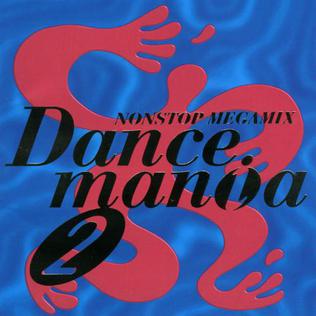
Dancemania 2 is the second set in the Dancemania series of dance music compilation albums, released in 1996 by EMI Music Japan.

I'm Taking Off is the second solo album released in 2011 by Backstreet Boys member Nick Carter. The album was initially released on his own record label, Kaotic INC. The album sold over 20,000 copies during first week in Japan alone.

"Go to the Top" is a song recorded by Japanese recording artist Kumi Koda for her eleventh studio album, Bon Voyage (2012). It premiered on October 24, 2012 as the lead single from the album. The song was written by Kumi, while production was handled by Clarabell. It was used as the opening theme song for the Âge–developed anime series Muv-Luv Alternative: Total Eclipse. Musically, the track was described as an electronic dance song with elements of 8-bit music, dance-pop, and dubstep.
Tsuyoku Tsuyoku Tsuyoku is the 32nd single released by Japanese boy band Kanjani Eight. It was released on 3 June 2015 on the band's Infinity Records label. It was number 1 on the weekly Oricon chart for the week of 1–7 June 2015. The song spent a total of 11 weeks in the Oricon chart and was the second-best selling single of June 2015 with 169,881 copies. It also reached number one on the Billboard Japan Hot 100. The song was used as the opening theme song on the Nippon Television drama series Do S Deka. The song was also included in the band's November 2015 album Kanjani no Genki ga Deru CD (関ジャニ∞の元気が出るCD‼).

Brand New Era is the second studio album by Japanese hip-hop group Lead on August 25, 2004. The album charted at No. 11 on the Oricon charts and remained on the charts for three weeks. Bonuses with the album included one of four possible posters, a remix of their song "Night Deluxe" and a specialized URL to allow buyers to download original wallpapers.

re(Mix) (stylized as re(MIX)) is the twelfth remix album released by Japanese singer-songwriter Koda Kumi on March 11, 2020. It charted at No. 33 on the Oricon charts. It was her third remix album to not be under the Driving Hit's series. Unlike the majority of her remix albums, this album was not part of the Driving Hit's series.

"Yūsha Tachi" is a song by Japanese singer-songwriter Miliyah Kato from her second compilation album M Best (2011) and her sixth studio album True Lovers (2012). The song was written by Kato herself, while the production was done by Kato's frequent collaborator, Yuichiro Goto. The single was released for the two versions of CD and digital download on 16 March 2011 through Mastersix Foundation as the lead single from M Best. Ahead of its official release, the short version of the song was released on 2 March 2011 as a ringtone.

















